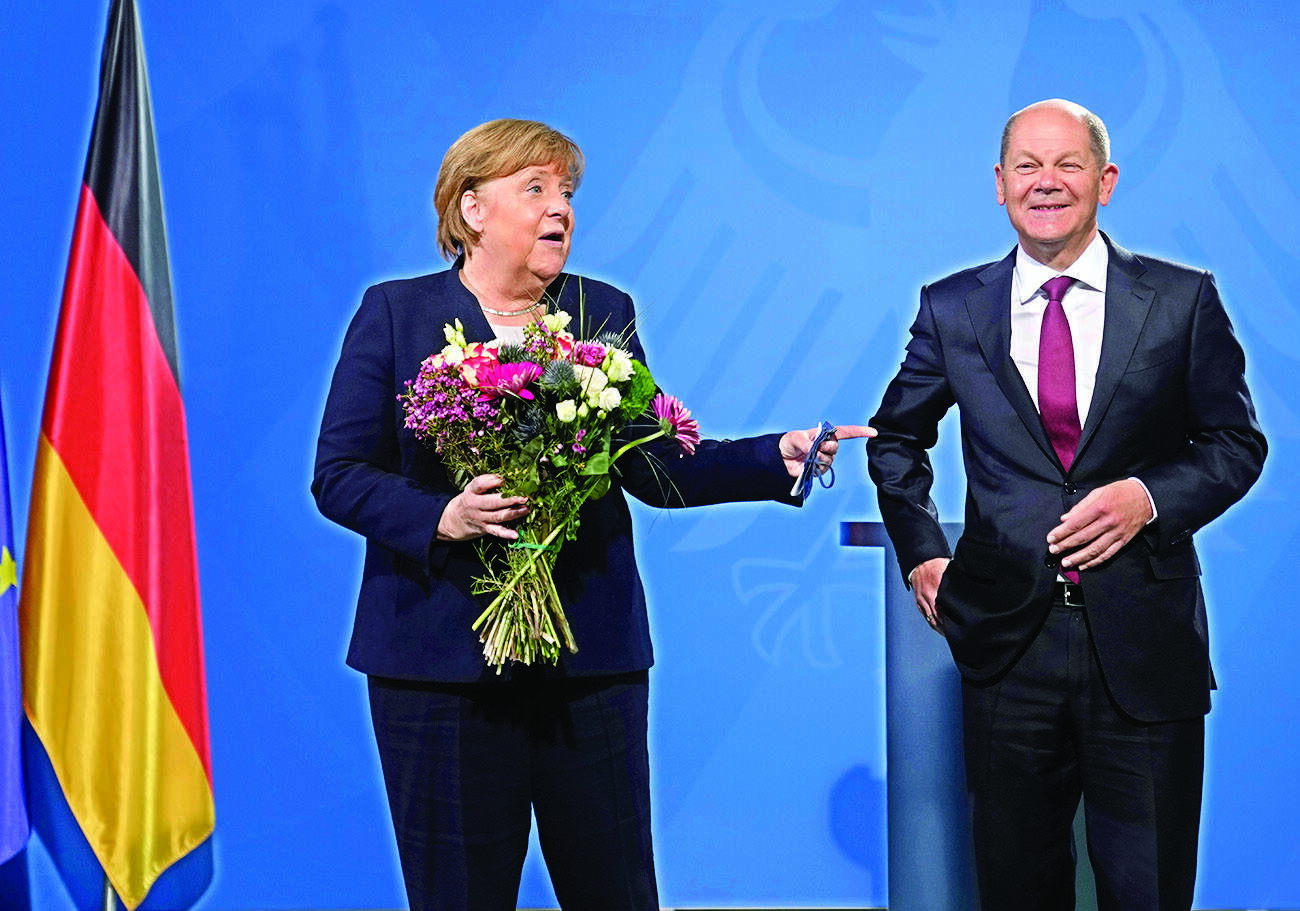Olaf Scholz voted in to replace Merkel as Germany's leader

Berlin: Germany's parliament elected Olaf Scholz as the country's ninth post-World War II chancellor on Wednesday, opening a new era for the European Union's most populous nation and largest economy after Angela Merkel's 16-year tenure.
Scholz's government takes office with high hopes of modernising Germany and combating climate change but faces the immediate challenge of handling the country's toughest phase yet of the Coronavirus pandemic. Lawmakers voted by 395-303 to elect Scholz as chancellor, with six abstentions. His three-party coalition holds 416 seats in the 736-seat lower house of parliament.
Scholz exchanged fist bumps with lawmakers from across the political spectrum. He was to be formally named as chancellor by Germany's president and sworn in by the speaker of parliament later Wednesday.
Merkel, who is no longer a member of parliament, looked on from the spectators' gallery as parliament voted. Lawmakers gave her a standing ovation as the session started.
Scholz, 63, Germany's vice chancellor and finance minister since 2018, brings a wealth of experience and discipline to an untried coalition of his centre-left Social Democrats, the environmentalist Greens and the pro-business Free Democrats. The three parties are portraying their uniting of former rivals as a progressive alliance that will bring new energy to the country after Merkel's near-record time in office.
We are venturing a new departure, one that takes up the major challenges of this decade and well beyond that, Scholz said Tuesday. If the parties succeed, he added, that is a mandate to be reelected together at the next election.
The new government aims to step up efforts against climate change by expanding the use of renewable energy and bringing Germany's exit from coal-fired power forward from 2038, ideally to 2030. It also wants to do more to modernize the country, including improving its notoriously poor cellphone and internet networks.
It also plans more liberal social policies, including legalising the sale of cannabis for recreational purposes and easing the path to German citizenship while pledging greater efforts to deport immigrants who don't win asylum. The coalition partners want to lower the voting age in national elections from 18 to 16.
The government also plans to increase Germany's minimum wage to 12 euros ( 13.50) per hour from the current 9.60 euros, which Scholz has said means a wage increase for 10 million. And the coalition also pledged to get 400,000 new apartments per year built in an effort to curb rising
rental prices.



